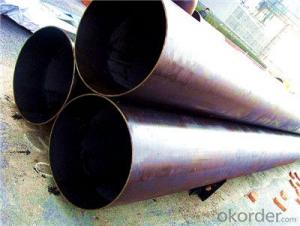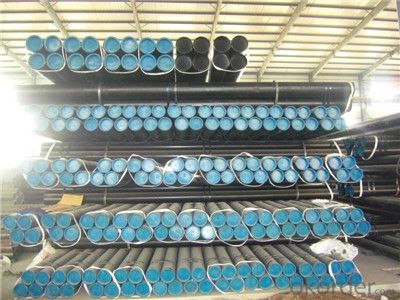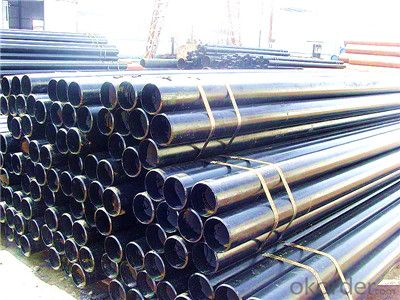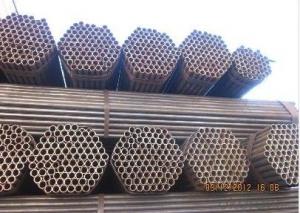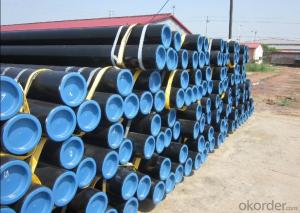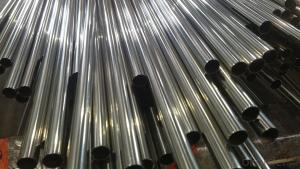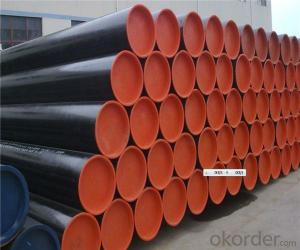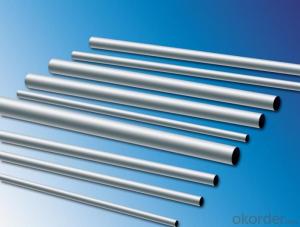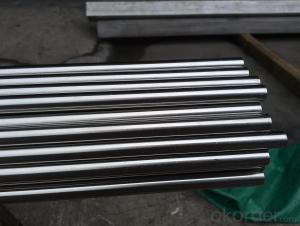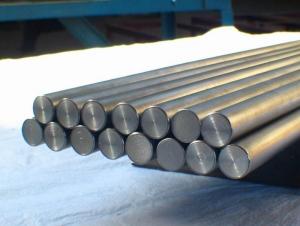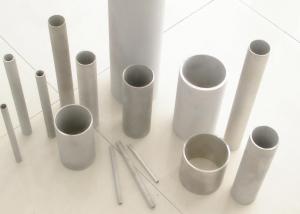Seamless Steel Pipe High Quality and Hot-Selling
- Loading Port:
- Tianjin
- Payment Terms:
- TT OR LC
- Min Order Qty:
- 50 m.t.
- Supply Capability:
- 3000000 m.t./month
OKorder Service Pledge
OKorder Financial Service
You Might Also Like
PRODUCT DETAILS
1.Structure of Seamless Steel Pipe Description:
A large amount of Seamless Steel Pipes is offered to the clients at cost effective rates. These pipes are extremely durable, resistant to corrosion and have high tensile strength. Our pipes are used in nuclear plants, power plants, refineries and construction industry across the country. Furthermore, we are capable of providing these seamless pipes to the clients in bulk quantity.
2.Main Features of the Steel Pipe:
• High manufacturing accuracy
• High strength
• Small inertia resistance
• Strong heat dissipation ability
• Good visual effect
•Reasonable price
3.Packaging & Delivery:
| Packaging Details: | Seaworthy packages, bundles wrapped with strong steel strip |
| Delivery Detail: | 15-30 days after received 30% TT |
4.Seamless Steel Pipe Specification:
| Standard: | GB, DIN, ASTM,ASME, ASTM A106-2006, ASTM A53-2007 |
| Grade: | 10#,20#, 45#, 16Mn |
Thickness: | 8 - 33 mm |
| Section Shape: | Round |
| Outer Diameter: | 133 - 219 mm |
| Place of Origin: | Shandong, China (Mainland) |
| Secondary Or Not: | Non-secondary |
| Application: | Hydraulic Pipe |
| Technique: | Cold Drawn |
| Certification: | API |
| Surface Treatment: | factory state or painted black |
| Special Pipe: | API Pipe |
| Alloy Or Not: | Non-alloy |
| Length: | 5-12M |
| Outer Diameter: | 21.3-610mm |
5.FAQ of Seamless steel pipe:
①How is the quality of your products?
Our products are manufactured strictly according to national and internaional standard, and we take a test
on every pipe before delivered out. If you want see our quality certifications and all kinds of testing report, please just ask us for it.
Guaranteed: If products’ quality don’t accord to discription as we give or the promise before you place order, we promise 100% refund.
②How about price?
Yes, we are factory and be able to give you lowest price below market one, and we have a policy that “ for saving time and absolutely honest business attitude, we quote as lowest as possible for any customer, and discount can be given according to quantity”,if you like bargain and factory price is not low enough as you think, just don’t waste your time.Please trust the quotation we would give you, it is professional one.
③Why should you chose us?
Chose happens because of quality, then price, We can give you both.Additionally, we can also offer professional products inquiry, products knowledge train(for agents), smooth goods delivery, exellent customer solution proposals.Our service formula: good quality+good price+good service=customer’s trust.
SGS test is available, customer inspection before shipping is welcome, third party inspection is no problem.
Any question, pls feel free to contact us !
- Q: Can steel pipes be used for structural supports?
- Yes, steel pipes can be used for structural supports. Steel pipes are strong, durable, and have high load-bearing capacity, making them suitable for providing structural support in various applications such as buildings, bridges, and infrastructure projects.
- Q: Can steel pipes be used for underground sprinkler systems?
- Yes, steel pipes can be used for underground sprinkler systems. Steel pipes are known for their durability and strength, making them a suitable choice for underground applications. They are resistant to corrosion and can withstand high pressure and temperature, making them suitable for delivering water to sprinkler heads. However, it is important to note that steel pipes may require additional coatings or protective measures to prevent rusting and corrosion over time. Additionally, steel pipes may be more expensive than other materials such as PVC or polyethylene, so the cost factor should be considered as well. Overall, steel pipes can be a viable option for underground sprinkler systems, particularly in areas with harsher environmental conditions.
- Q: How are steel pipes protected from corrosion?
- Steel pipes are protected from corrosion through various methods such as applying protective coatings, using sacrificial anodes, or employing cathodic protection systems.
- Q: What are the advantages of PVC pipe and galvanized steel pipe?
- This is different in different fields, in fact, the combination of PVC pipe and galvanized steel pipe becomes plastic steel pipe.The steel plastic pipe is in the internal and external combined with a layer of plastic pipe material and obtained a pipe, it has high mechanical strength, the steel pipe has the advantages of high impact resistance, and corrosion resistance of plastic material, has the advantages of high and low grade health fluid resistance and scaling.The steel pipe used by our company is produced by Benxi Steel, which is well known both at home and abroad. It has the advantages of low phosphorus, low sulfur and high mechanical performance. It can meet the requirements of users.
- Q: What are the common standards and specifications for steel pipes?
- The common standards and specifications for steel pipes include ASTM A53, ASTM A106, API 5L, and ISO 3183. These standards outline the requirements for the manufacturing, dimensions, and mechanical properties of steel pipes used in various industries such as oil and gas, construction, and transportation. Additionally, specific applications may have their own standards and specifications that need to be met for quality and safety purposes.
- Q: What are the different methods of pipe repair for steel pipes?
- When it comes to repairing steel pipes, there are several methods available that depend on the severity and location of the damage. Below, you will find a list of the most common methods used: 1. Welding: This method is frequently employed for fixing steel pipes, particularly when the damage is confined to a specific area. To execute this repair, the damaged portion of the pipe is removed and replaced with a new piece that is welded securely. Afterwards, the weld is thoroughly inspected to verify its strength and reliability. 2. Pipe wrapping: This approach entails wrapping a layer of fiberglass or epoxy tightly around the damaged section of the pipe. This wrap provides structural reinforcement and effectively prevents further leakage or corrosion. 3. Pipe lining: This technique involves inserting a flexible liner into the damaged pipe. The liner is typically composed of materials such as epoxy, PVC, or cured-in-place pipe (CIPP). Once inserted, the liner is either inflated or heated to conform to the shape of the pipe, creating a new inner surface that is resistant to corrosion and leakage. 4. Slip lining: Similar to pipe lining, slip lining involves placing a smaller diameter pipe inside the damaged one. The smaller pipe acts as a protective sleeve, reinforcing the structure and preventing further deterioration of the original pipe. 5. Pipe bursting: This method is utilized when the damage to the pipe is extensive. A new pipe is pulled through the damaged one using a hydraulic or pneumatic system. As the new pipe is pulled through, it bursts the old pipe, resulting in a larger diameter pipe with minimal disturbance to the surrounding area. 6. Clamp or sleeve repair: In cases where the damage is small and localized, a clamp or sleeve can be applied to temporarily or permanently fix the issue. The clamp or sleeve is placed securely over the damaged section to prevent leakage. It is important to keep in mind that the optimal method for repairing steel pipes depends on factors like the extent of damage, accessibility, cost, and structural requirements. It is recommended to consult with a professional pipe repair specialist or engineer to determine the most suitable method for your specific situation.
- Q: Are steel pipes suitable for underground installations?
- Yes, steel pipes are suitable for underground installations. Steel pipes are known for their durability, strength, and resistance to corrosion, making them ideal for underground use. They can withstand the pressure from the surrounding soil and are able to handle heavy loads, making them a reliable choice for underground installations such as drainage systems, water supply lines, and underground utilities.
- Q: What are the different types of corrosion that can affect steel pipes?
- There are several types of corrosion that can affect steel pipes, including general or uniform corrosion, pitting corrosion, galvanic corrosion, crevice corrosion, and stress corrosion cracking.
- Q: What is the lifespan of galvanized steel pipes?
- The lifespan of galvanized steel pipes can vary depending on several factors such as the quality of the galvanizing process, the environment in which they are installed, and how well they are maintained. However, on average, galvanized steel pipes can last between 40 to 70 years before they may start to show signs of corrosion or degradation.
- Q: Can steel pipes be used for agricultural irrigation?
- Yes, steel pipes can be used for agricultural irrigation. They are durable, resistant to corrosion, and have high tensile strength, making them suitable for transporting water over long distances in agricultural fields. Steel pipes also have the advantage of being able to withstand high pressure, making them ideal for irrigation systems that require efficient water distribution.
Send your message to us
Seamless Steel Pipe High Quality and Hot-Selling
- Loading Port:
- Tianjin
- Payment Terms:
- TT OR LC
- Min Order Qty:
- 50 m.t.
- Supply Capability:
- 3000000 m.t./month
OKorder Service Pledge
OKorder Financial Service
Similar products
Hot products
Hot Searches
Related keywords
